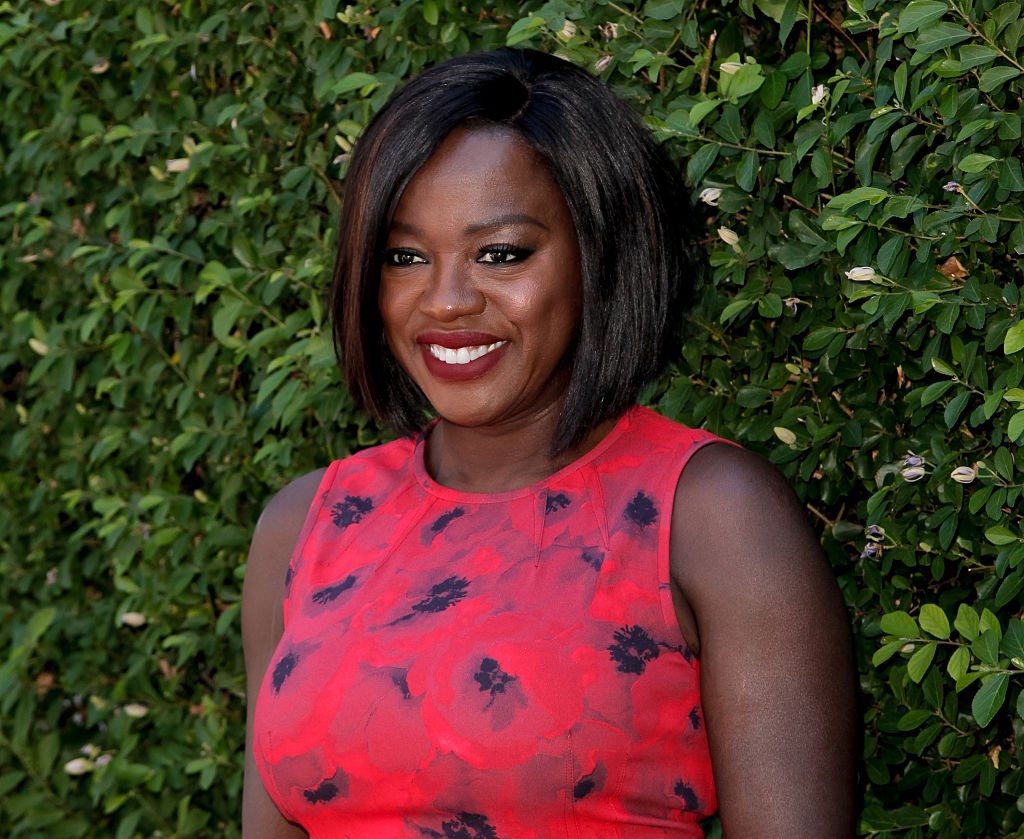
Viola Davis‘ own experiences with sexual assault led her to become an advocate for the Rape Foundation, the actress explained in a powerful speech Sunday.
Davis, 51, opened up about her experience with the group while being honored at the Rape Foundation’s Annual Brunch in Beverly Hills.
“Myself, my mother, my sisters, my friend Rebecca, my friend from childhood, we all have one thing in common: We are all survivors of sexual assault in some way, shape or form,” said the How to Get Away with Murder star.
“Listen, when I was young, there were so many men in the neighborhood who gave you money if they could touch you,” she continued. “Going over to a friend’s house for a birthday party at the age of seven, there was always someone there who touched you.”
Davis, who has previously spoken publicly about how her sister was a victim of sexual assault, opened up again about the experience.
“My sister Danielle was 8 years old when she was on roller skates and went down to the corner store at 1 o’clock in the afternoon and was sexually assaulted in the aisles,” said Davis. “She told my mom right away – my mom ran down to the store. The store owner’s response was: ‘He does that to all the little girls.’ ”
“My mom flagged down the police, and the perpetrator did pay,” she continued. “He paid. He was fined $10 a month. It’s over for him, but I’d like to redefine survivor.”
Opening up about her sister’s struggles to this day, Davis said being a survivor is “remaining alive after the death of.”
“My sister is now a heroin addict, she’s a prostitute,” she said. “The friend of mine who’s a survivor, I call her a survivor because her 7-year-old daughter was taken from the backyard of her grandma’s house while playing in the middle of the day. They couldn’t find her for an entire day, and they finally found her sexually assaulted, strangled dead. So her mom, she’s surviving. It’s just that when she’s surviving, when she’s alive just having a meal, she has flashbacks – post-traumatic stress disorder.”
“I asked her how she gets through, she says: ‘I don’t know, it’s a nightmare. I pray to God,’ ” said Davis.
“Memories demand attention, because memories have teeth,” continued the actress. “That sexual assault perpetrator can move on. The only person who rapes is the rapist. The person who is left behind has to pay over, and over, and over again.”
Davis went on to list her “three wishes” to the members of the audience.
“Number one, if you have not visited the Rape Treatment Center or the Stuart House, you must. That’s all I’ll say, then I’ll let your heart do the rest,” she said. “Number two, it’s like the famous Shakespeare quote: ‘To whom should I complain?’ If you have anyone in your life that you know, or if you don’t know is a rape survivor then listen because truly whatever you say, if you feel ashamed in any way of your story – shame cannot exist if you tell it to people who have empathy.”
“And number three, that in your mind today, listen,” she said. “I’m with Emile Zola, I want to ‘live out loud.’ I do,” she said.
“Living out loud is not playing Annalise Keating on How To Get Away With Murder, it’s not being Amanda Waller in Suicide Squad, it’s not getting an Oscar,” she explained. “Living out loud is living a life that’s bigger than yourself. Living out loud is long after you’re gone – and trust me, everyone in this room, you’re going to be dead a lot longer than you’re alive even if you live to be 100 years old – you leave something on this Earth that’s bigger than yourself. And that’s a big message in this town.”
Davis said half of the victims helped by the Rape Foundation are children, noting that one in four girls and one in six boys are sexually abused before turning 18.
“They don’t want to just survive, they want to be warriors. They want to know that at the time that they were held down, and strangled, that wasn’t their death,” said Davis. “And you giving to the Rape Treatment Center, the Stuart House, anything to make sure there’s models just like that in this world, in this country is you living out loud.”
“So those are my three wishes, my three prayers. And I continue to pray for my sister, that she understands that she’s not dirty,” continued Davis. “That she understands that her perpetrator is not afraid of his anger, that he’s afraid of her anger. And it’s okay to feel angry because something has been done to you.”
“Thank you for the award, I am humbled by it,” she added. “If you can in any way grant my three wishes – just pick one, pick them all, but live out loud.”
For more about the Rape Foundation or to donate, visit their website here.
This article originally appeared on People.
More Must-Reads from TIME
- Why Trump’s Message Worked on Latino Men
- What Trump’s Win Could Mean for Housing
- The 100 Must-Read Books of 2024
- Sleep Doctors Share the 1 Tip That’s Changed Their Lives
- Column: Let’s Bring Back Romance
- What It’s Like to Have Long COVID As a Kid
- FX’s Say Nothing Is the Must-Watch Political Thriller of 2024
- Merle Bombardieri Is Helping People Make the Baby Decision
Contact us at letters@time.com